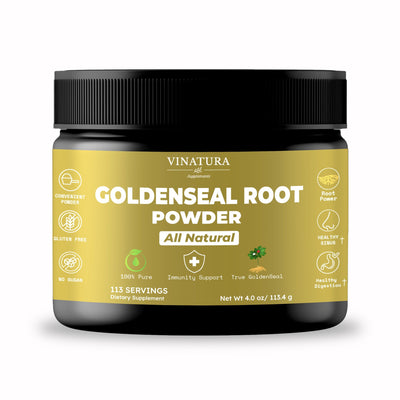
Bromelain Vs. Serrapeptase: The Comprehensive Comparison
Bromelain and serrapeptase are two enzymes known for their anti-inflammatory and pain-relieving properties.
While bromelain is extracted from pineapples, serrapeptase is an enzyme produced by bacteria in the intestines of silkworms.
Both are widely used to treat inflammatory conditions, aid digestion, and improve various health issues.
This article comprehensively compares the two enzymes, helping you understand their uses, effectiveness, and how to use them.
Before exploring further, please read the disclaimer located at the end of this webpage.
Key Takeaways
- Bromelain is a protease enzyme mixture extracted from the stems and fruit of the pineapple plant.
- Bacteria in the intestines of silkworms produce Serrapeptase.
- Both bromelain and serrapeptase have anti-inflammatory and digestive support properties.
- Both enzymes can be used to treat post-surgical symptoms and other inflammatory conditions.
- Using bromelain and serrapeptase together can enhance therapeutic effects.
- Attention should be paid to dosage and timing when using both enzymes.
What is Bromelain?

Bromelain, extracted from the stems of pineapples (Ananas comosus), possesses several biological properties, including promoting cell growth, circulation, and anti-inflammation [1].
Bromelain is a plant extract containing multiple active components whose proportions can vary based on soil conditions, climate, pineapple variety, and production process. These factors can affect the pharmacological activity of bromelain.
This enzyme breaks down proteins, helping to reduce inflammation, swelling, and pain. Bromelain is widely used in medicine to treat sinusitis and arthritis, particularly to reduce swelling and pain after surgery.
Main Benefits of Bromelain [2]:
- Cardiovascular and Circulatory System: Bromelain helps relieve angina and transient ischemic attacks and is useful in preventing and treating thrombotic vein inflammation. It can also break down cholesterol plaques and has strong fibrinolytic activity, protecting muscles against ischemic and reperfusion injury.
- Arthritis Relief: Bromelain can reduce pain and inflammation in arthritis, comparable to diclofenac, a nonsteroidal anti-inflammatory drug (NSAID). This makes bromelain a potential alternative to NSAIDs in treating arthritis.
- Immune System: Bromelain is recommended as an adjunct treatment for chronic inflammatory diseases, cancer, and autoimmune diseases. It helps enhance immune response.
- Clotting and Fibrinolysis: Bromelain increases fibrinolytic activity, prolongs clotting time, and helps prevent blood clots.
- Diarrhea: Bromelain combats diarrhea-causing agents by preventing bacteria from adhering to the intestinal mucosa, reducing diarrhea symptoms.
- Cancer: Bromelain reduces cancer cell growth and invasion, inhibits cancer-promoting factors, and helps reduce tumor growth.
- Surgery: Bromelain reduces post-surgical pain and inflammation, helping decrease swelling, bruising, and pain after childbirth, and supports the treatment of acute inflammation and sports injuries.
What is Serrapeptase?

Serrapeptase, also known as serratiopeptidase, is a protease enzyme produced by the Serratia bacteria in the intestines of silkworms. Serratiopeptidase is an anti-inflammatory enzyme with numerous clinical applications, including production and treatment [3].
It has several significant therapeutic uses, such as anti-inflammatory effects, anti-biofilm formation, mucolytic activity, and synergistic effects with other medications.
Main Uses of Serrapeptase [3]:
- Anti-inflammatory: Serrapeptase reduces inflammation by breaking down inflammatory proteins, thereby reducing swelling and pain.
- Wound Healing: This enzyme helps dissolve dead tissue and improve microcirculation at the wound site, promoting faster healing.
- Anti-biofilm Formation: Serrapeptase reduces bacterial adhesion, enhancing the effectiveness of antibiotics in treating biofilm-related infections.
- Mucolytic Activity: The enzyme thins and decreases the viscosity of mucus, improving respiratory symptoms for patients with respiratory disorders, including COVID-19.
- Fibrinolytic Activity: Serrapeptase can break down blood clots, helping to prevent and treat cardiovascular diseases caused by arterial blockages.
- Synergistic Properties: When combined with antibiotics, serrapeptase enhances the drugs' effectiveness, helping to prevent biofilm formation and more effectively eliminate bacteria.
- Anti-cancer: Some studies suggest that serrapeptase can inhibit the growth of cancer cells, particularly in the early stages of cancer.
- Autoimmune Disease Treatment: This enzyme is also used in treating autoimmune diseases such as arthritis, helping to reduce inflammation and pain.
Learn more: Benefits Of Serrapeptase For Heart Disease & Arterial Plaque
Bromelain Vs. Serrapeptase: Which Enzyme is Better?

Comparing bromelain and serrapeptase is not straightforward, as both enzymes have unique advantages. However, here are some key differences between the two:
|
Aspect |
Bromelain |
Serrapeptase |
|
Source |
Extracted from pineapples |
Produced by bacteria in silkworm intestines |
|
Mechanism |
Bromelain is a protease enzyme that breaks down proteins, helping to reduce inflammation, swelling, and pain by breaking down proteins in the blood and damaged tissues. |
Serrapeptase is also a protease enzyme that breaks down proteins, but it focuses on destroying scar tissue, blood clots, and mucus in the body. |
|
Key Benefits |
Reduces inflammation, aids digestion, enhances drug absorption |
Reduces inflammation, breaks down dead tissue, aids wound healing |
|
Applications |
Treats sinusitis, arthritis, reduces post-surgical swelling |
Treats arthritis, sinusitis, reduces post-surgical swelling |
|
Suitable For |
Better for those needing support with digestion, acute inflammation, sinusitis, and cancer treatment |
Ideal for those dealing with chronic pain and inflammation, post-surgical and injury-related swelling, respiratory conditions needing mucus reduction, and cardiovascular health issues |
|
Side Effects |
May cause mild side effects like diarrhea, nausea, vomiting, and increased menstrual bleeding in some people. Avoid using bromelain if you are on blood thinners or allergic to pineapples. |
Can cause side effects such as skin reactions, muscle and joint pain, weight loss, nausea, abdominal pain, cough, and blood clotting disorders. Should not be used with blood-thinning medications or supplements to avoid the risk of bleeding or bruising. |
The comaprision table of Serrapeptase and Bromelain
Additionally, a study has shown that combining proteolytic enzymes such as trypsin, bromelain, and rutoside provides better control of postoperative sequelae compared to serratiopeptidase [4].
Can You Take Serrapeptase and Bromelain Together?
Research has shown that combining serrapeptase and bromelain may significantly benefit treating arthritis. These enzymes have anti-inflammatory and anti-swelling effects, which help reduce pain and improve inflammation [5].
However, more research is needed to determine the combined effects of these enzymes on our bodies.
Before combining these two enzymes, it is important to discuss them with a doctor or healthcare professional to ensure safety and effectiveness.
Moreover, both serrapeptase and bromelain have blood-thinning properties, so using them together may increase the risk of bleeding or bruising, especially if you are taking blood-thinning medications or other supplements with similar effects.
How to Take Serrapeptase and Bromelain Together?
When using serrapeptase and bromelain together, it is important to follow your doctor's advice or the manufacturer's instructions. Here are some guidelines for using these enzymes together:
Dosage
- The specific dosage of each enzyme depends on various factors such as health conditions, age, and purpose of use.
- Typically, the common dosage of serrapeptase ranges from 10 to 60 mg per day, divided into multiple doses throughout the day [6].
- Bromelain is usually taken in doses ranging from 80 to 320 mg daily, divided into multiple doses.
Timing
- Generally, you should take serrapeptase and bromelain before meals, at least 30 minutes prior or as directed by your doctor.
- They can be taken with water or other beverages.
Adjusting Dosage
- Dosages can be adjusted based on the body's response and the doctor's guidance. Start with a lower dose to see how your body reacts.
- Avoid exceeding the recommended dosage unless supervised by a doctor.
Adhering to Instructions
- Always read the usage instructions carefully and consult a doctor or healthcare provider before starting any new medication or supplement.
- Follow the prescribed directions and dosages strictly.
Monitoring Health
- Monitor your health closely when using serrapeptase and bromelain to ensure no adverse reactions.
- Remember that using serrapeptase and bromelain together, or any other supplements, requires supervision and advice from a doctor, especially if you have specific health conditions or are taking other medications.
You may be interested: Can You Take Serrapeptase With Coffee?
Conclusion
Bromelain and serrapeptase are powerful enzymes with many health benefits, especially in reducing inflammation and pain after surgery.
Proper comparison and use of these enzymes can yield the best therapeutic outcomes.
We hope this article has provided a comprehensive understanding of bromelain and serrapeptase.
Related article:
- Can You Take Serrapeptase And NAC Together?
- Can You Take Serrapeptase And Lumbrokinase Together?
- 10 Best Serrapeptase Supplements For Circulation Health
References
- [1] Taussig SJ, Batkin S. Bromelain, the enzyme complex of pineapple (Ananas comosus) and its clinical application. An update. Journal of Ethnopharmacology. 1988;22(2):191-203. doi:https://doi.org/10.1016/0378-8741(88)90127-4
- [2] Pavan R, Jain S, None Shraddha, Kumar A. Properties and Therapeutic Application of Bromelain: A Review. Biotechnology Research International. 2012;2012:1-6. doi:https://doi.org/10.1155/2012/976203
- [3] Nair SR, Subathra Devi. C. Serratiopeptidase: An integrated View of Multifaceted Therapeutic Enzyme. Biomolecules. 2022;12(10):1468-1468. doi:https://doi.org/10.3390/biom12101468
- [4] Raparthi Bhuvan Chandra, Kathiravan Selvarasu, Krishnan M. Comparison of Efficacy of Combination of Bromelain, Rutocide, and Trypsin With Serratiopeptidase on Postoperative Sequelae Following Mandibular Third Molar Surgery: A Randomized Clinical Trial. Curēus. Published online November 10, 2023. doi:https://doi.org/10.7759/cureus.48633
- [5] Oatext.com. Published 2014. Accessed May 23, 2024. https://www.oatext.com/efficacy-of-a-combination-of-fixed-doses-of-serratiopeptidases-bromelain-and-methylsulfonylmethane-in-inflammatory-joint-diseases.php
- [6] Bhagat S, Agarwal M, Roy V. Serratiopeptidase: A systematic review of the existing evidence. International journal of surgery. 2013;11(3):209-217. doi:https://doi.org/10.1016/j.ijsu.2013.01.010
Author

Product Disclaimer
The dietary supplement products mentioned on this website are formulated based on scientific research and adhere to FDA guidelines for dietary supplements. However, the content of the articles has not been evaluated by the Food and Drug Administration (FDA) and is not intended to promote or endorse any specific product. Any products sold on this website are not intended to diagnose, treat, cure, or prevent any disease.
Opinions and Endorsements
Any claims, statements, or opinions expressed in the articles are those of the author(s) and do not necessarily reflect the views or opinions of the manufacturers of the dietary supplement products. The products sold on this website are separate from the content of the articles and are not directly endorsed or associated with the information presented here.
Liability Disclaimer
The author(s) of the articles, website, and manufacturers of the dietary supplement products do not assume any liability for any potential consequences arising from the use of the information provided in the articles. It is recommended that individuals consult with a qualified healthcare professional before making any dietary or lifestyle changes, including the use of dietary supplements.
Product Usage
Please refer to the product labels and packaging for specific usage instructions and guidelines for the dietary supplement products sold on this website.
Customer Support
For any concerns or questions regarding the dietary supplement products, please contact our customer support team, who will be more than happy to assist you.





Leave a Comment
Be the first to comment.
What do you think?